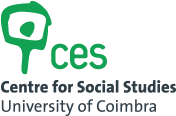Trafficking in human beings for the purposes of labour and sexual exploitation
What was the problem?
The trafficking in human beings, in its several strands, has known a mediatisation process and acquiring a central importance in the agendas of several governments, international organisms, NGOs, academy, amongst others. International studies indicate that the number of trafficked persons grew during the 1990's and beginning of the Century, with the trafficking in women for the purpose of sexual exploitation being the most visible form of trafficking.
In Portugal, the phenomenon of trafficking for the purposes of labour and sexual exploitation was, at the time, little studied. It was in this sense that CES promoted two investigations: “Trafficking in Women for the Purpose of Sexual Exploitation in Portugal” (2006-2007) and “Trafficking for the Purposes of Labour Exploitation: challenges to the Law and Rights” (2012-2014), with the objective of characterizing the present dynamics and tendencies of the trafficking for purposes of labour and sexual exploitation and identifying the main obstacles to this crime's investigation and to the victims' protection.
What did we do?
The first study, “Trafficking in women for the Purpose of Sexual Exploitation in Portugal”, coordinated by Boaventura de Sousa Santos, Conceição Gomes and Madalena Duarte, was developed between 2006 and 2007 and obtained funding from the Gender Equality Commission (Comissão para a Igualdade de Género – CIG). In the work's conclusion, contributes were presented to CIG for a more efficient intervention in the field of prevention, in the legal field and for the victim's protection and assistance. It was in the sequence of this project that the project “Trafficking for the Purposes of Labour Exploitation: challenges to the Law and Rights” emerged, with funding from FCT (Foundation for Science and Technology), between 2012 and 2014, coordinated by Cecília MacDowell Santos. In parallel, an international project – led by CES – was initiated, “THB: COOPtoFIGHT – The fight against trafficking in human beings in EU: promoting legal cooperation and victims' protection” (2011-2014), coordinated by Boaventura de Sousa Santos and Madalena Duarte. Both sought going beyond an analysis of the legislation and of the tools and strategies for the judiciary cooperation between European countries, reflecting therefore on some of the measures quoted as “best practices” in the cooperation domain and promoting training with specialists, judges and law enforcement agents, testing the orientations developed by the project and promoting the capacitating of legal – and other – actors in this field.
What happened?
The study on women trafficking for purposes of sexual exploitation revealed that there are stereotypes around the conception of the woman victim of trafficking (mostly influenced by her role in the sex industry and by nationality) which lead to a hierarchisation of victimisation, harmful for the women needing to attain a security threshold. The study on the trafficking for labour purposes in Portugal highlighted that this is, along the trafficking for sexual purposes, a “worrying phenomenon", with several victimisation cases, whether of exploited foreigners in Portugal, whether of Portuguese abroad. The two studies confirmed Portugal's position in the European trafficking routes as a destination country in what concerns sexual trafficking, and as a destination and origin country in what regards labour trafficking. This investigation line was later followed with the project on trafficking with labour purposes, which took place at the same time as the international project and which tried to understand – and suggest improvements and changes to – the legal cooperation and victims' protection system.
The international study reinforced this crime's relevance in Europe and concluded that the economic crisis creates conditions for the labour trafficking increase. The qualitative focus investigation has also determined the prejudice and negligence conditions to which the trafficking victims are subjected to, compelling to a critical approach of the “vulnerability” concept inscribed in the law.

THB:COOPtoFIGHT
The fight against trafficking in human beings in EU: promoting legal cooperation and victims' protection
Boaventura de Sousa Santos
August 1, 2011 to April 22, 2014
European Commission
(ISEC Action Grant)
Trafficking for the purposes of labour exploitation: challenges to the law and rights
Cecília MacDowell Santos
April 1, 2012 to September 30, 2014
Portuguese Foundation for Science and Technology
Read moreEvaluation of the National Plan Against Trafficking in Human Beings
April 1, 2009 to July 31, 2010
Portuguese Commission for Citizenship and Gender Equality
Read moreTrafficking in women for the purposes of sexual exploitation in Portugal
Boaventura de Sousa Santos
April 3, 2006 to August 1, 2007
Commission for Equality and for Women's Rights
Read more
